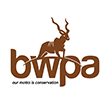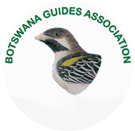Embarking on a camping trip in Botswana requires a good deal of planning and preparation. You will be going to remote areas, accessible only by four-wheel drive, where water, petrol or food may not be available. You may often be driving on rough terrain, and through heavy sand, in conditions very different from those you are used to.
As a general rule, take all food requirements to last your stay. Take at least 20 litres of water per person, preferably more; for desert destinations, carry between 50 and 100 litres. Carry at least 100 litres of petrol in long-range tanks and/or in metal jerry cans. Take spare vehicle parts for breakdowns, including at least one spare wheel, and
As campsites within game reserves and national parks are usually not fenced, it is important for campers to take necessary precautionary measures to ensure their safety, and to abide by the information provided by wildlife officers.
The following basic camping rules should be strictly heeded:
- Only camp in designated campsites.
- Always sleep in your tent, roof tent or vehicle. Make sure your tent zips up well.
- Don’t sleep with legs or arms protruding from the tent.
- Use rubbish receptacles at the campsites; if there are none, carry away all rubbish until you get to the next town.
- Cigarette butts should be well extinguished and placed in a rubbish bag, not thrown on the ground.
- Make sure the campfire is well extinguished at the end of the evening, or after use, and cover it with sand.
- Don’t sleep on bridges or animal paths, particularly those of elephants and hippos.
- Bury all faecal matter and burn all toilet paper.
- Don’t bathe or drink from still bodies of water; there is the danger of bilharzia.
- In the Okavango, don’t swim in lagoons or streams; there is the danger of crocodiles and/or hippos.
- Children must be constantly supervised. Never leave them alone in the campsite. Never allow children to nap on the ground or in the open.
- Don’t stray far from the campsite, or walk in the bush, unless with a qualified guide.
Driving is on the left side of the road. The national speed limit on tarred roads is 120 km/h and 60 km/h in towns and villages. Watch out for wildlife and domestic animals on the roads. In the National parks always stay on the established tracks in order to avoid the ugly scars left by off-road driving. Stay below the 40km/h speed limit for the safety of wildlife and yourselves.
The general rule of thumb for camping in Botswana is – take only memories, leave only footprints.
Fishing
In the Panhandle area of the Okavango, there are a number of camps and lodges that specialise in fishing excursions. Fishing can also be done on the Chobe River, outside the park. Fishing is only allowed in designated areas of the national parks, and only with an official permit.
For fishing permit enquiries, contact
Department of Wildlife & National Parks
Gaborone Office
P.O. Box 131, Gaborone
Tel: +267 397-1405
Fax: +267 391-2354 / 393-2205
Maun Office
P.O Box 11, Maun
Tel: +267 686-0368
Fax: +267 686-0053
Kasane Office
P.O. Box 17, Kasane
Tel: +267 625-0486,
Fax: +267 625-1623
Note: Permits must be applied for in person. Both monthly and annual permits are issued.
Firewood
Firewood is defined as wood that is both dead and fallen and which can be removed without the use of tools. Self-drive campers should use firewood sparingly and only when necessary.










